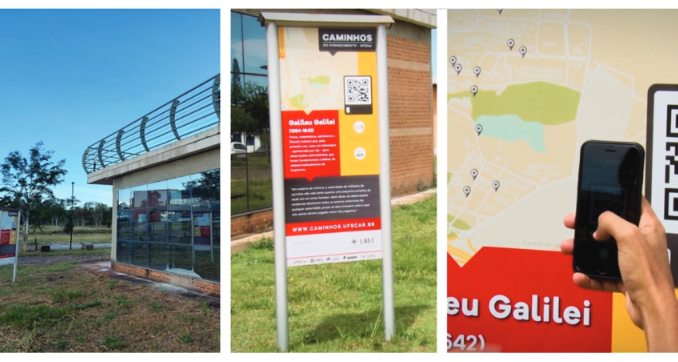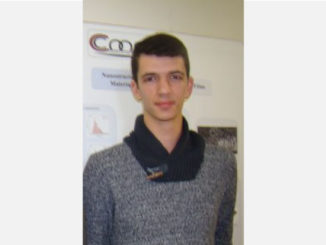
Exploring where science is made in an outdoor and digital museum in a Brazilian university
Abstract: In conventional science museums, where collections are at the centre of activities, large financial contributions and staff are required, which results in their existence being unfeasible in many cases, especially in developing countries. We present an alternative proposal: a science centre called Knowledge Paths, which is, simultaneously, a virtual platform and an outdoor museum located on one of the campuses of the Federal University of São Carlos (UFSCar), Brazil. The project has a much lower cost than traditional institutions and presents itself as a possibility for mediation between different audiences and scientific knowledge. The approach used is supported by the theoretical framework from Educating Cities and science, technology, society (STS) education. The project proposes itineraries to be followed on campus, through signposts that, in addition to texts about great scientists and other thinkers, contain QR codes linking them to videos, other texts and supplementary materials related to the areas of knowledge associated with the marked places. The project also offers guided tours in which participants visit laboratories and other locations where science is made. The museum has two functioning itineraries: the Epistemological Trail, about history and the main characteristics of different areas of knowledge; and the Light Trail, which is aimed at children.
Author(s): Fabrício, T.M.; Pezzo, M.R.; Oliveira, A.J.A.
Research for All
Published: 26 April 2022
DOI: 10.14324/RFA.06.1.10
CDMF
The CDMF, hosted at the Federal University of São Carlos (UFSCar), is one of the Research, Innovation and Dissemination Centers (RIDC) supported by the São Paulo State Research Support Foundation (Fapesp), and also receives investment from the National Council Scientific and Technological Development (CNPq), from the National Institute of Science and Technology of Materials in Nanotechnology (INCTMN).




